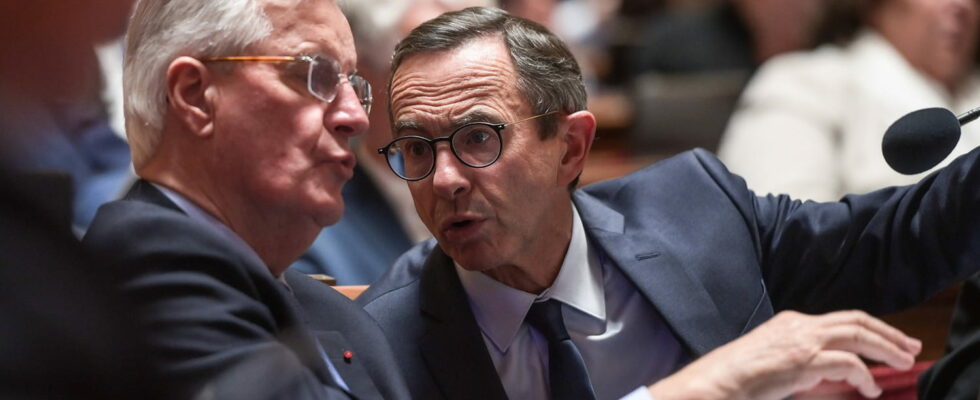The Minister of the Interior has been pleading for several weeks for reform and a reduction in AME spending. With regard to the 2025 finance bill, he does not seem to have won his case.
Three weeks after the appointment of his government, the Prime Minister, Michel Barnier, presented this Thursday, October 10, the 2025 finance bill. A text particularly scrutinized by the opposition which was waiting for the executive to turn. If many points should give rise to debate in the hours and days to come, one of the expenses addressed in the PLF 2025 seems to have an air of disavowal for the Minister of the Interior, Bruno Retailleau.
Contrary to what the new tenant of Beauvau has been pleading for three weeks, no reform or reduction in expenditure is planned for state medical aid, this system allowing foreign people who are in an irregular situation to benefit from access to care, better known by its acronym AME. On closer inspection, there would even be a very slight increase in spending. “The appropriations opened in the finance bill amount to 1.3 billion euros (including 1.2 billion euros for the AME and 0.1 billion euros for urgent care and vital for people who cannot prove a right to AME)”, indicates the press kit on the finance bill. In 2024, the forecast amount of the AME amounted to 1.13 billion euroswhile there was talk of granting 0.07 billion euros to urgent care.
Bruno Retailleau opposed to the Minister of Health on the reform of the AME
Two days after his appointment, the new tenant of Beauvau had reopened, on September 23, the explosive file of the reform of the AME, clearly indicating to TF1’s 20 Hours that he wanted to reform it. “We have one problem, it’s that we are one of the European countries which gives the most advantages. […] I don’t want France to be the most attractive country in Europe for a certain number of social benefits for access to care”, explained Bruno Retailleau, specifying that he wanted to reform it into “emergency medical aid”.
A point of view that his colleague the Minister of Health, Geneviève Darrieussecq, hardly shared. On franceinfo, she did not fail to clarify the government’s position on the AME: “There is no question of touching state medical aid.” LThe conclusions of the report by Claude Evin and Patrick Stefanini last December on the AME say “very simply that it is a useful and well-managed system, and controlled very strictly by health insurance. So on this point- there, I want everyone to be reassured,” she insisted. And to tackle Bruno Retailleau when the journalist tickled her about the position defended by the Minister of the Interior: “I am a doctor, I talk about medicine and public health. […] State medical aid is also insurance for the health of the French to avoid certain contagions.” And the minister said: “We must not have taboos on this subject, but we must not create fantasies .”
Strengthened control and anti-fraud systems
In light of the 2025 finance bill unveiled this Thursday evening, it seems that Michel Barnier finally agreed with his Minister of Health, even though Bruno Retailleau was still asking the Prime Minister on Wednesday evening to “arbitrate “. “It is he who sets the government’s line. We are asking the French to make efforts: it is not unfair to also ask foreigners to do so. I am ready to have this debate, including within the government”, defended the tenant of Beauvau in an interview given to Parisian.
As we can read this Thursday evening in the press release on the finance bill, the AME is defended as being a system which “contributes to protecting the entire population from epidemiological and health risks”. However, if a slight increase in the budget which will be allocated to it next year is envisaged, the PLF 2025 clearly specifies that “the control and fight against fraud systems [seront] reinforced in order to ensure rigorous management of this system.
